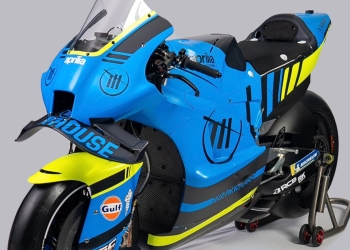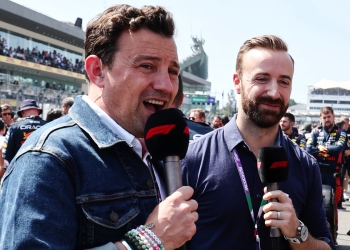Ferrari’s fingers have been hovering for much of the last 12 months but this week it finally pulled the trigger and put an end to Maurizio Arrivabene’s tenure as Ferrari Team Principal. What went wrong – and what challenges does his successor Mattia Binotto face?
The more successful Ferrari became under Arrivabene the more perilous his position became – because for all of the growth and its re-emergence as a force to be reckoned with it remained agonisingly short of the championship that it so craves, nay, demands.
Ferrari is one of very few globally recognised brands for whom winning is not a pursuit but an obligation. Any race it loses is a failure to win. Any title it fails to take is a catastrophe. And the past decade has largely been a dismally fallow period following the halcyon days of the early 2000s, in which it could do no wrong, and which it has failed to replicate.
Arrivabene initially provided much-needed stability but slowly but surely the situation unravelled
Arrivabene was drafted in by newly-appointed Chairman Sergio Marchionne in late 2014, at the conclusion of one of the most tumultuous years in Ferrari’s Formula 1 history. The suave Arrivabene initially provided much-needed stability but slowly but surely the situation unravelled. A culture of fear had been fostered by both Marchionne and Arrivabene, stifling creativity, while its relationship with the wider world was hampered by its complete contempt of the press. Journalists are not the centre of the universe, but such disregard was not well received, particularly in Ferrari’s native Italy. The critics got more critical. And not without reason. Marchionne reportedly recognised the stellar work Binotto had undertaken with Ferrari’s engine department in the wake of Luca Marmorini’s mid-2014 exit and appointed him as Chief Technical Officer. Binotto preferred a more open culture and it was little surprise that Ferrari’s creativity flourished in 2017 and 2018, even if there were mis-steps along the way. Binotto’s stature was rising. Arrivabene's reputation had flat-lined.

Marchionne had already made two key decisions in 2018 before his untimely and shocking death, and the first of those was honoured soon after, with the news that Charles Leclerc would replace Kimi Raikkonen for 2019.
That news came as Ferrari’s title bid again began to stutter. While Mercedes made well-judged and rational decisions, doing so in a blameless culture under Toto Wolff, Ferrari appeared their diametric opposites. Strategy blunders in Germany and Italy proved critical, mistakes from its lead driver raised questions as to how he was being managed – particularly in contrast to the Lewis Hamilton/Mercedes situation – while Arrivabene’s outburst after another clanger in Japan revealed a team in a fractious position. Ferrari’s operational weaknesses were too costly and by the closing months of the campaign it was almost a running joke of waiting to see how they could dream up their next blunder. Vettel was not blameless in the setbacks but he cut an increasingly exasperated figure, ostensibly unable to place a full trust in the Arrivabene-led team, and the mistakes grew as his focus became splintered. Again, contrast this with the Hamilton-Mercedes dynamic. Once rumours surfaced that it was a case of either Arrivabene or Binotto departing it was clear that the former was under the most pressure. Marchionne had reportedly already made his choice, and, as with Leclerc, it has been honoured.
And thus into the breach steps Binotto.
The quietly understated Binotto has risen through the ranks across his 23-year period with Ferrari, his trajectory more akin to that of Ferrari lifer Stefano Domenicali than long-term Philip Morris executive and politically-minded Arrivabene. Binotto now enters a honeymoon period but that will not last if his Ferrari team is unable to dislodge Mercedes. Ferrari’s list of ins and outs in the last five years is not a short one.
Binotto needs Vettel operating at a level he has not consistently reached in years if he is to overhaul Hamilton
On-track Ferrari is in its healthiest position for a decade, even accounting for 2018 setbacks, having taken six wins last year. It fell short of sustaining a year-long challenge but had the aptitude to recognise where it had gone wrong in developing its SF71-H and put measures in place to rectify the situation. It enters 2019 as a genuine title contender. But there are still several challenges. Binotto needs Vettel operating at a level he has not consistently reached in years if he is to overhaul Hamilton, and must do so while tempering the expectations of new recruit Leclerc, whose talent needs to be carefully guided. Getting the most out of both drivers, while ensuring that have a profitable working relationship, will be vital. When, where, and how to decide who and why to back may well also define title ambitions. It will be a delicate balance. Binotto must unlock the strength of Ferrari’s senior race team to avoid the errors that derailed some 2018 races, placing trust in both his own decisions while delegating effectively, knowing when to take charge and when to defer to those in trusted positions. In the modern era of split-second choices and communication across several departments in an organisation of thousands of people, the role of a Team Principal has probably never been so multi-layered.

It means that off-track Binotto will also face tests.
Both Wolff and Red Bull’s Christian Horner have proved largely media-savvy in an era of 24/7 news coverage, a constant request for interviews, and regular appearances both in front of fans and for corporate events at Grand Prix weekends. Binotto is now the public figurehead for Ferrari and his words will be regularly assessed and analysed, particularly in Italy. Getting the press back on side will help. Binotto will also play a crucial role in representing Ferrari’s views in meetings with fellow team bosses and Formula 1 management, with crunch post-2020 talks looming on the agenda. Ferrari has enjoyed many advantages that Liberty is keen to address and which the Italian operation will not be so eager to relinquish. His predecessor, Arrivabene, was well-versed in Formula 1 politics through his previous role at Philip Morris and his erstwhile position as the sponsors' representative in key discussions. Binotto also has the senior hierarchy to take into account – itself an unknown at this stage due to the low profile Chairman John Elkann and CEO Louis Camilleri have taken regarding Formula 1 since Marchionne’s untimely passing.
Italy expects. Ferrari expects. Will Binotto’s team deliver?






